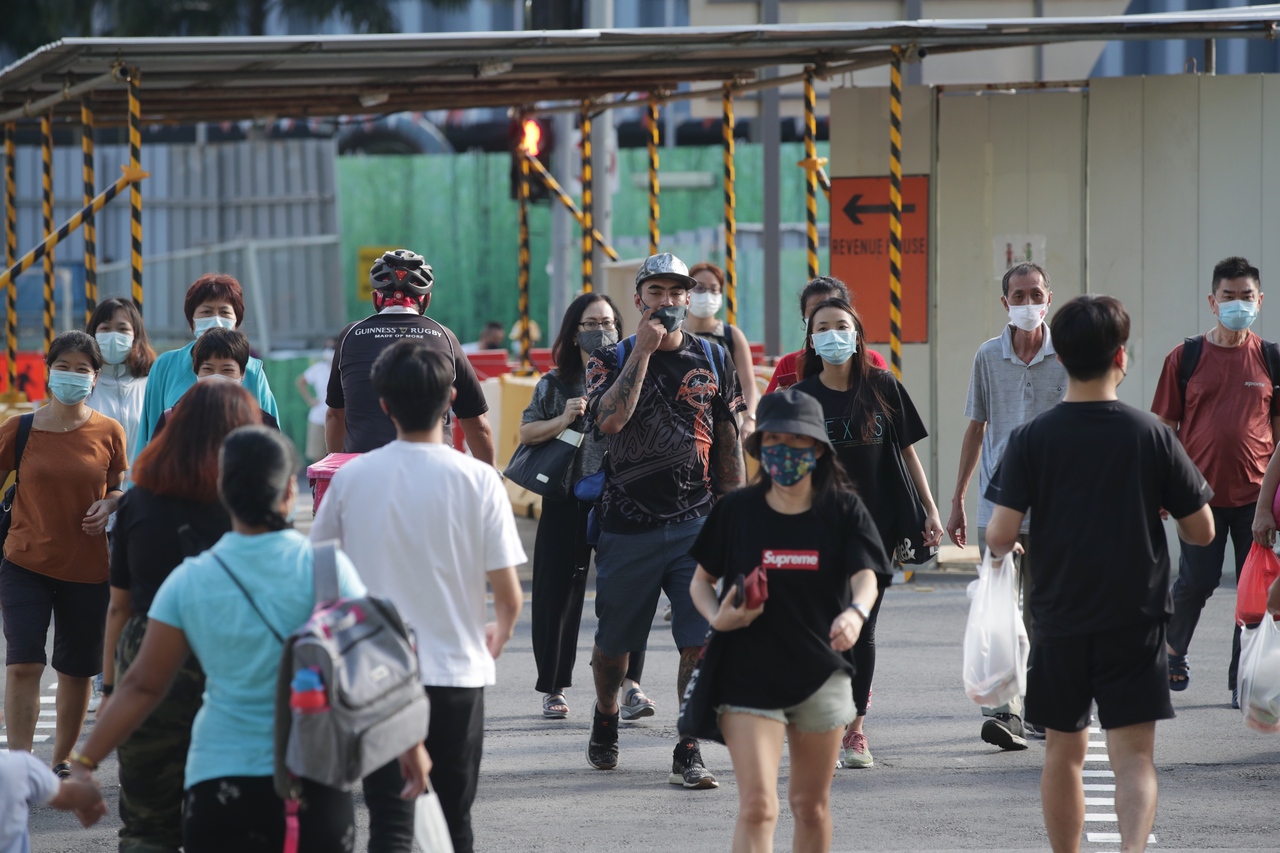More needs to be done to combat racial microaggressions in S'pore: ST webinar panellists
Sign up now: Get ST's newsletters delivered to your inbox

It is important to address microaggressions before they fester and leave a bad impression, says Minister Edwin Tong.
ST PHOTO: GIN TAY
SINGAPORE - Some people at vaccination centres have refused to get a Covid-19 jab from a member of another race, said Minister for Culture, Community and Youth Edwin Tong.
And Nominated MP Shahira Abdullah - who is an associate consultant and orthodontist at Khoo Teck Puat Hospital - said some patients have asked for chairs to be cleaned because it was used by a member of a minority race.
These were a few instances of racial microaggressions Mr Tong and Dr Shahira touched on at a webinar on race organised by The Straits Times on Wednesday (July 14).
Mr Tong said such microaggressions can happen daily in public spaces, schools and workplaces, and it is important to address these experiences before they fester and leave a bad impression.
He said: "We have to deal with these microaggressions... and this really is dealt with best by venue, places, and also making it part of the lived experience - have people socialise, have teams that come together.
"It has got to be organic but I think it must also create the opportunities for such organic relations to build up and to cement."
Mr Tong was one of five panellists at the ST Connect webinar, which was moderated by ST Singapore editor Zakir Hussain.
The panellists agreed that microaggressions and racial discrimination exist in Singapore but added that the key task now is for individuals and organisations to address the issue and take steps to put an end to the problem.
For instance, Mr Tamilavel, who is news and digital editor at Tamil Murasu, said he has been called racial slurs by children many times when he was in a lift.
The parents, he added, did nothing.
Such experiences, he said, stood in contrast to children who are respectful and greet him when they see him in the neighbourhood because their parents taught them well.
Mr Tong said being called racial slurs is an example of how microaggressions occur every day in public spaces.
Another panellist, Mr Leonard Sim, who is the general secretary of advocacy group hash.peace, said there needs to be more discussions on such racially discriminatory acts because they affect the mental health of the victims.
Mr Sim's organisation works with mental health advocacy group Mental ACT to help those who have experienced racial discrimination talk about their experiences.
He said: "You get conversations that are very real, very raw, an outpouring, sometimes, of grief, trauma, emotional hurt, and we're very lucky to have our partners at Mental ACT to help us and make sure they are okay, and healing from these experiences.
"And what we at hash.peace get out of it as well is that you start to realise that we need to do more."
Mr Sim said workplaces need to get involved in efforts to address racial discrimination because people spend a lot of time there.
Employers can organise programmes on discrimination and diversity that could help to change the mindset of workers. They, in turn, can teach their children the importance of values like tolerance and understanding, he added.
Schools have a role to play, too, and Mr Tamilavel said the efforts have to go beyond celebrating racial diversity on Racial Harmony Day once a year.
Children are by nature inquisitive, and it is important to open up channels for them to ask questions about other races without judgment or prejudice, he added.
Mr Tamilavel gave the example of how his daughter had asked him about a Sikh boy who was wearing a turban.
"She asked me: 'Why is the boy wearing a turban?' She didn't know what it was. So, I explained that it is their culture. So, this kind of conversation is very important."
Grassroots activist Hafez Sorouri Zanjani, who was also part of the panel, said people could also teach their children about their own cultures and beliefs, so that they are well-equipped to answer questions from their friends.
Mr Hafez, who has Persian roots, talked about how his peers asked him many questions about his cultural practices and the clothes that he wore.
He did not always have all the answers, so he would go home and ask his parents for details.
"If children get a question about something, and if they are equipped to answer it, then I think that's perfect. Kids teaching kids," he said.
Mr Tong said racial microaggressions cannot be allowed to be normalised here. If that were to happen, people at the receiving end of discriminatory actions and words might feel like the situation in Singapore is a "lost cause", he added.
"And when we get to that stage, it becomes a slippery slope. So, these are all occasions where we have to be proactive, deal with it, inoculate against a situation. But when it does arise, I think it's got to be dealt with," he said.


